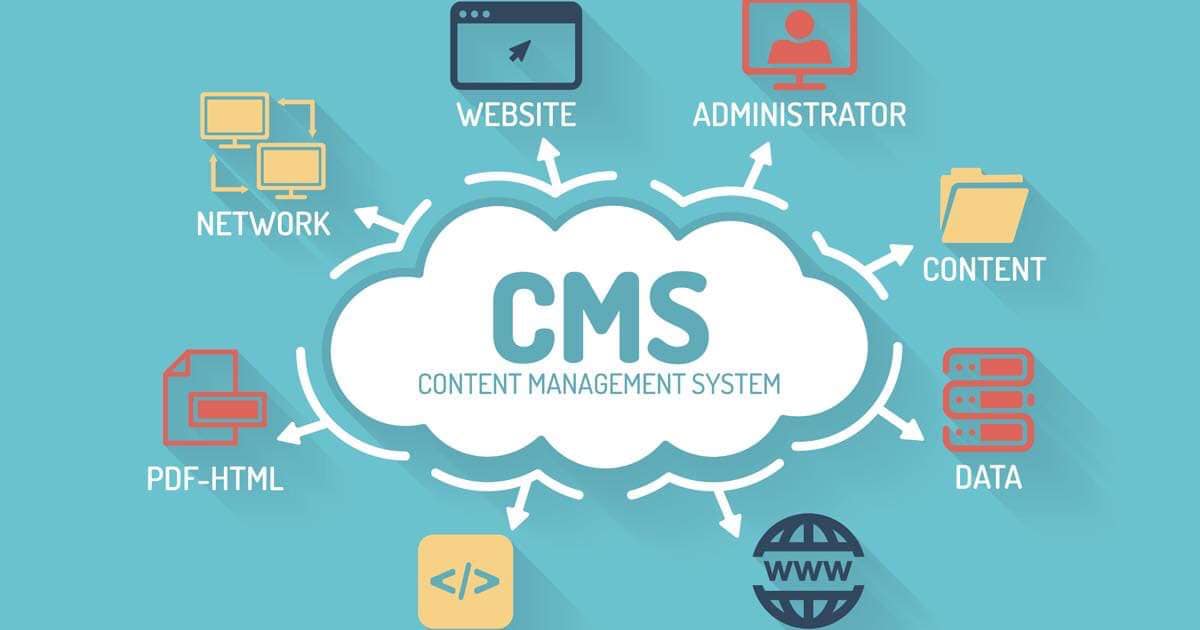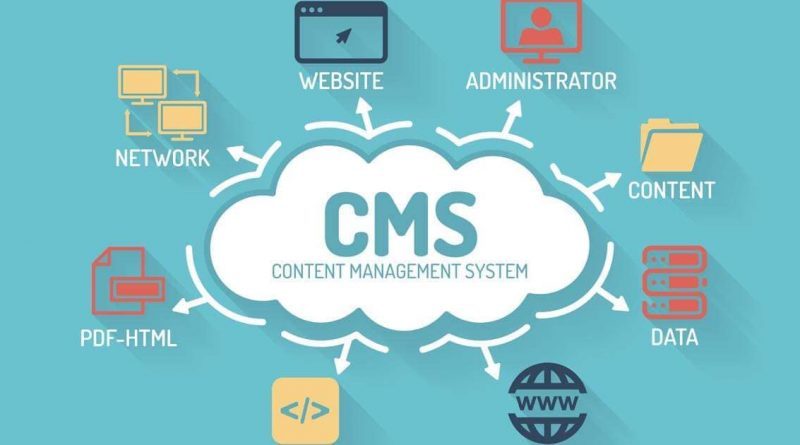All about Content Management System (CMS) Platforms (2)
CMS technology is a designed technology whereby general users, who do not have any prior knowledge of writing a website, can create features and data contained in a website. In other words, you can readily create a dynamic website without needing to write a lot of codes. CMS itself, in fact, is also a web app and it will have two interfaces, front end, and back end. The front end is the user interface and the back end is the management interface for managing the content of the website. The back-end management section is protected by a website, and therefore only authorized webmaster, who is permitted, can use it. Moreover, you can manage the website not only as an individual, but also as a team, yet you have to be authorized beforehand.  Phtoto Source https://web.facebook.com/RainbowTechnology.Myanmar/?ref=page_internal
Phtoto Source https://web.facebook.com/RainbowTechnology.Myanmar/?ref=page_internal
CMSs mainly manage such a plenitude of important performances as managing data like content, managing user accounts, managing categories and tags called Content Meta, managing design layouts, and managing pages and posts readily.
Since CMSs have been used by a large number of developers for many years and made to meet necessary requirements, it will take a lot of time, money, and effort to generate an all-around system like theirs. Because it is not that easy to be comprehensive in terms of security, ease of maintenance, and capabilities, being able to access and use these ready-to-use features effectively became an advantage.
Sometimes, people may find it confusing between a website and a web app. Even though CMSs are helpful in building a variety of content-based websites, when you want to create your own apps with customized functions and structures, you have to build them by writing them yourself or using web app frameworks.
(1) Joomla
Joomla is also one of the most popular CMSs. In addition, it is also an easy-to-use CMS widely used after WordPress. Both of them have excellent communities and you can choose diverse templates and extensions. Furthermore, it will be free to use its platform like WordPress. Joomla was first announced in August 2005. There are a lot of hosting services available for Joomla. If you want to write a professional website, you should opt for Joomla. Despite being intended for developers, it can be readily created and edited without having to write a single line of code. There are a wide variety of options particularly for eCommerce so you can simply write eCommerce sites using Joomla. Learn more about Joomla at joomla.org.
(2) Drupal Phtoto Source https://web.facebook.com/RainbowTechnology.Myanmar/?ref=page_internal
Phtoto Source https://web.facebook.com/RainbowTechnology.Myanmar/?ref=page_internal
Another popular one is Drupal. Drupal is also a type of open-source platform. University websites and sites such as The Economist are developed using Drupal. It is a great platform for advanced sites where a lot of data handling and management are needed. Compared to WordPress, it also has its own different features. As Drupal is also open-source like WordPress and Joomla, there is a wide range of communities to turn to for help mutually. However, it is not such a platform as WordPress which is easy to use for beginners, because it could be a little confusing while adding necessary features for the website and other requirements. Information about Drupal can be found at drupal.org.
There are not only general CMSs which are mentioned above but also other systems alike to CMS, which are ideally suited for specific fields. Magento for eCommerce, Moodle for education platforms, MediaWiki for online knowledge bases like Wikipedia, Elgg for social networks, and Vanilla Forum for internet forums can also be used. Subsequently, CMSs such as Wix, WooCommerce, Contentful, and Squarespace have been widely used. With the proliferation of those CMS platforms, the notion that ‘A website can be built by anyone get instilled in these days. Nonetheless, that statement should be considered true only in a general sense. No matter how prevalent CMSs are, if you want to build a truly advanced and high-quality website, you still need to possess appropriate technical skills for it.






